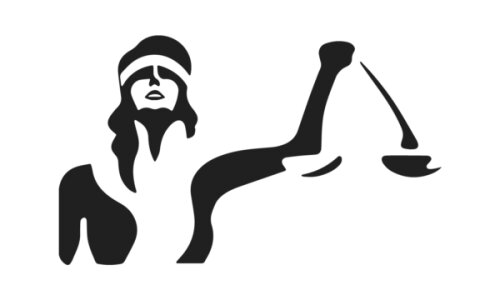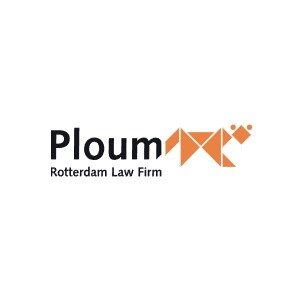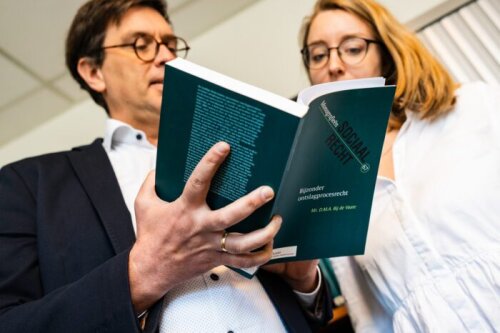Best Restructuring & Insolvency Lawyers in Rotterdam
Share your needs with us, get contacted by law firms.
Free. Takes 2 min.
List of the best lawyers in Rotterdam, Netherlands
Netherlands Restructuring & Insolvency Legal Articles
Browse our 1 legal article about Restructuring & Insolvency in Netherlands written by expert lawyers.
- Netherlands WHOA Guide: How Creditors Can Protect Their Rights
- The WHOA (Dutch Court Confirmation of Extrajudicial Restructuring Plans) allows companies to restructure debt without the consent of all creditors. A "cross-class cram-down" can bind dissenting classes of creditors to a plan if at least one "in-the-money" class votes in favor. Creditors have limited windows to challenge a plan, usually... Read more →
About Restructuring & Insolvency Law in Rotterdam, Netherlands
Restructuring & Insolvency law in Rotterdam, Netherlands governs the processes that companies and individuals follow when facing financial distress or inability to meet their financial obligations. Rotterdam, known for its major port and dynamic business environment, is a commercial hub where many businesses operate, making the need for clear legal frameworks around financial difficulties particularly significant. The law covers voluntary and involuntary insolvency procedures, business rescues, restructuring of debts or company organizations, and liquidation when recovery is not possible.
Dutch insolvency law provides protection to both creditors and debtors, aiming to maximize returns to creditors while also allowing room for debtors to reorganize and potentially continue their activities. Professional guidance is often crucial, as the legal landscape may involve complex negotiations, court proceedings, and statutory obligations.
Why You May Need a Lawyer
If you or your business is experiencing financial hardship, seeking help from a lawyer specialized in restructuring and insolvency in Rotterdam can be invaluable. Common situations where legal assistance is essential include:
- Assessing whether your company can be restructured or must be liquidated
- Developing a debt restructuring or refinancing plan
- Negotiating with creditors or debtors during periods of financial trouble
- Defending against bankruptcy filings or preparing for voluntary insolvency
- Understanding director's liability and safeguarding against personal risk
- Managing cross-border insolvency cases involving foreign assets or creditors
- Navigating the laws around surseance van betaling (suspension of payments), bankruptcy, or WHOA procedures
- Protecting yourself from creditor collections, asset seizures, or court actions
- Dealing with disputes among shareholders, partners, or board members related to insolvency
- Ensuring compliance with statutory obligations and reporting to court-appointed trustees or administrators
Local Laws Overview
Restructuring and insolvency matters in Rotterdam are governed by Dutch national law, but the local dynamics of Rotterdam’s business landscape often add practical considerations. The key areas of Dutch law concerning restructuring and insolvency include:
- Faillissementswet (Dutch Bankruptcy Act) - This act regulates insolvency procedures, including bankruptcy (faillissement), suspension of payments (surseance van betaling), and debt rescheduling for individuals (WSNP).
- WHO Act (Wet Homologatie Onderhands Akkoord, WHOA) - Introduced to modernize Dutch restructuring law, WHOA enables court-confirmed private restructuring plans for companies in financial distress.
- Director’s and officer’s liability - Company management has specific duties before and during insolvency. Failing these may lead to personal liability.
- Creditor hierarchy - Dutch law establishes a ranking system that determines in which order creditors are paid.
- Role of the Rotterdam District Court - Local courts supervise insolvency proceedings, appoint trustees, and confirm restructuring plans.
- Cross-border issues - As a port city, Rotterdam businesses often face cross-border insolvency challenges, for which EU insolvency regulations may apply.
It is critical to understand how these laws apply to your specific situation. Changes to legislation or court practice may affect your options, so consulting a specialist in Rotterdam is recommended.
Frequently Asked Questions
What is the difference between bankruptcy and suspension of payments in the Netherlands?
Bankruptcy (faillissement) involves the liquidation of a debtor's assets to pay creditors, typically when debts can no longer be paid. Suspension of payments (surseance van betaling) offers temporary protection from creditors, giving time to reorganize finances or negotiate settlement.
When should a company consider filing for insolvency?
A company should consider filing when it is no longer able to meet its financial obligations as they fall due and restructuring options are insufficient to reverse the financial distress.
What is the WHOA and how can it help my business?
The WHOA is a Dutch law that allows struggling businesses to offer creditors and shareholders a restructuring plan that, once confirmed by the court, binds all stakeholders, even dissenting creditors. This can prevent bankruptcy and help rescue viable businesses.
Are directors personally liable for company debts in insolvency?
Directors are generally not personally liable, unless there has been evidence of improper management and statutory rules have not been followed. Timely action and transparent administration are key to limiting liability.
How are creditors ranked during insolvency proceedings?
Creditors are paid in a specific order: secured creditors (like banks with collateral) first, followed by preferred creditors (such as tax authorities and employees), then unsecured creditors, and finally shareholders.
What are the alternatives to formal bankruptcy in Rotterdam?
Alternatives include private out-of-court restructuring, the WHOA scheme, suspension of payments, informal negotiations, and turnaround plans with creditors and investors.
Can insolvency proceedings affect directors personally?
Yes, directors may be investigated for mismanagement, fraudulent conduct, or failing to comply with legal obligations, potentially resulting in personal liability or disqualification.
How long do insolvency proceedings normally take?
The duration varies. Bankruptcy liquidations can take from several months to years, while WHOA proceedings or out-of-court restructurings are often faster.
Are there specific insolvency rules for multinational companies in Rotterdam?
Cross-border insolvency cases may fall under the EU Insolvency Regulation, which addresses jurisdiction, applicable law, and recognition of proceedings across EU countries, including the Netherlands.
Can individuals also benefit from restructuring laws in Rotterdam?
Yes, individuals can use the Wet schuldsanering natuurlijke personen (WSNP) for debt rescheduling, while entrepreneurs and self-employed persons may access various restructuring options similar to those available to companies.
Additional Resources
Those seeking support or information can turn to the following resources in Rotterdam and the Netherlands:
- Rotterdam District Court (Rechtbank Rotterdam) - Supervises insolvency proceedings within Rotterdam’s jurisdiction.
- Legal Aid Board (Raad voor Rechtsbijstand) - Provides information on legal aid for individuals and businesses in financial distress.
- Netherlands Enterprise Agency (RVO) - Offers support for entrepreneurs facing financial difficulties.
- Chamber of Commerce (Kamer van Koophandel) - Provides guidance and resources for businesses, including on restructuring and insolvency matters.
- Dutch Bar Association (Nederlandse Orde van Advocaten) - Can help in finding qualified restructuring and insolvency lawyers in Rotterdam.
Next Steps
If you find yourself or your company facing financial difficulties in Rotterdam, consider taking the following steps:
- Seek early legal advice from a lawyer experienced in restructuring and insolvency in Rotterdam.
- Gather all relevant financial documents and information for a clearer assessment of your position.
- Consult with your accountant or financial advisor to explore options for restructuring or turnaround.
- Identify key stakeholders, such as creditors, investors, and employees, who may need to be involved in any negotiations or proceedings.
- Be transparent and proactive in communication with all parties involved to preserve trust and cooperation.
- If appropriate, apply to local courts or seek mediation services to facilitate agreements or oversee insolvency proceedings.
- Stay informed about statutory deadlines and reporting obligations to minimize legal and personal risks.
Taking timely and informed action is critical when dealing with restructuring and insolvency. Legal professionals in Rotterdam are well-versed in the local and national context and can provide tailored advice to help you navigate your situation.
Lawzana helps you find the best lawyers and law firms in Rotterdam through a curated and pre-screened list of qualified legal professionals. Our platform offers rankings and detailed profiles of attorneys and law firms, allowing you to compare based on practice areas, including Restructuring & Insolvency, experience, and client feedback.
Each profile includes a description of the firm's areas of practice, client reviews, team members and partners, year of establishment, spoken languages, office locations, contact information, social media presence, and any published articles or resources. Most firms on our platform speak English and are experienced in both local and international legal matters.
Get a quote from top-rated law firms in Rotterdam, Netherlands — quickly, securely, and without unnecessary hassle.
Disclaimer:
The information provided on this page is for general informational purposes only and does not constitute legal advice. While we strive to ensure the accuracy and relevance of the content, legal information may change over time, and interpretations of the law can vary. You should always consult with a qualified legal professional for advice specific to your situation.
We disclaim all liability for actions taken or not taken based on the content of this page. If you believe any information is incorrect or outdated, please contact us, and we will review and update it where appropriate.













